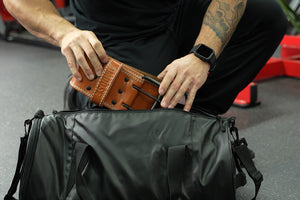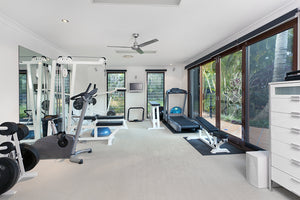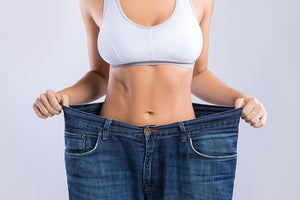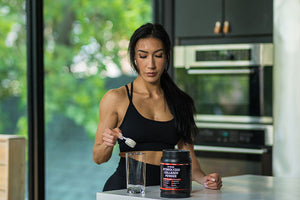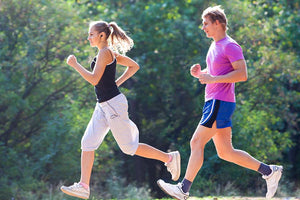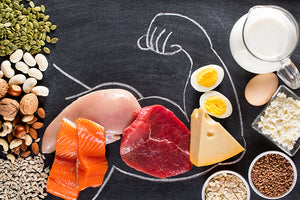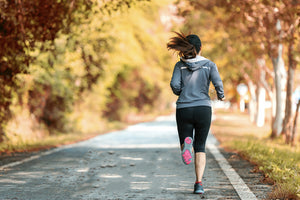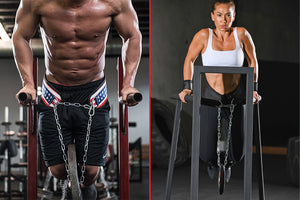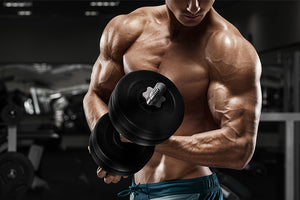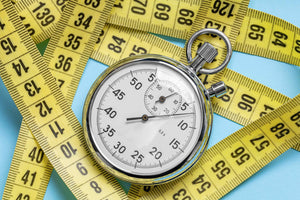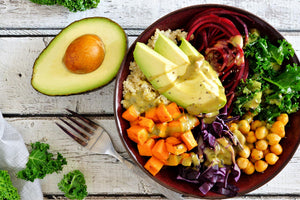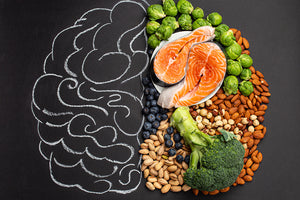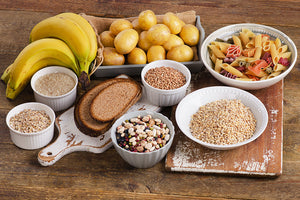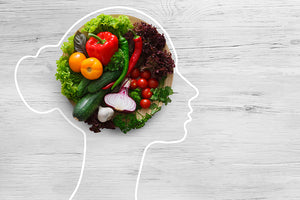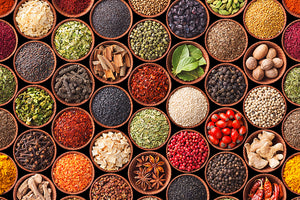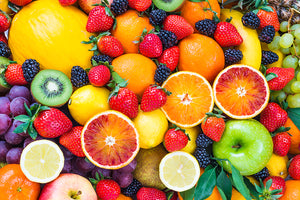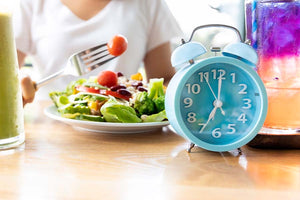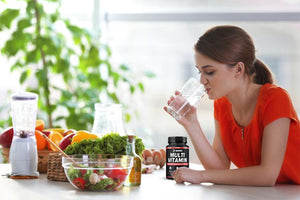An athlete’s lifestyle is the base of their success and potential. If they want to make a career in the long run, they need to upgrade their lifestyle. Several factors determine their improved living, and one of those factors is nutrition.
They need highly nutritious and well-balanced food in terms of calories and nutrients. Also, they need monitoring of what they eat during the day and how they are eating it. It doesn’t mean that their food intake is complicated. It's just that they need to eat healthier options.
So if you are an athlete and figuring out what you should eat and what you should not, you have come to the right place. We will cover all the details regarding the nutritious foods you need to eat to improve your health and game performance.
So, let’s get started!
Related Article: Some Good Habits That Can Enrich Your Lifestyle
What are the Needs of an Athlete's Body?

Getting healthy nutrition is a basic thing for everybody and not only athletes. It is how you keep yourself healthy, active, and capable of performing day-to-day activities. As we are talking specifically about athletes, they need more nutrition.
Their diet depends upon what type of training they are doing, the frequency of the training, and the type of sport they are into. Athlete’s diet is significant for their growth and game performance, gaining energy, and good health. A healthy competitive athlete requires about 3,000 to 5,000 calories per day compared to a typically less active person whose calories intake should be 2,000 per day.
According to a review study, nutrition improves athletic performance by reducing tiredness, risk of infection and injury and allowing athletes to exercise more effectively and recover more quickly. If the athletes don’t take enough nutrition, their energy intake and expenditure will become imbalanced. Short stature, late puberty, menstruation dysfunction, loss of muscular mass, increased vulnerability to tiredness, injury, and sickness are all symptoms of energy deficits.
Overeating can lead to obesity and being overweight. It means there should be a balance between the energy they are expending and their intaking energy.
As you know what the requirements of an athlete’s body are, let’s move to the part where we will tell you what athletes should eat.
What are Nutritious Foods for Athletes?
A healthy diet can help athletes perform better throughout their careers. The most effective approach to sticking to a healthy diet is becoming aware of the nutrients present in your food.
Generally, a healthy diet has a balance of macro and micronutrients. If it lacks enough macro and micronutrients, you're more likely to feel weary and perform poorly during sports.
Down below is the detail of macro and micronutrients essential for athletes. We will also tell you about some recovery foods for athletes. After training sessions, they play a significant role in quick energy and muscle recovery.
Macronutrients

As the name suggests, macronutrients are those nutrients/ingredients that your body needs in excess. They mainly act as fuel to perform physical activities. Carbohydrates, proteins, and fats are the three primary macronutrients that provide energy to the body. Hence, foods containing these three macronutrients are the primary need of athletes.
Carbohydrates
All carbohydrates are converted into simpler sugar (glucose) during digestion. It is the body's principal energy source. Glycogen is made from glucose and is retained in the liver and muscle tissue. It is an important energy source for training muscular tissue and other physiological functions. Athletes can boost their glycogen levels by eating carbohydrate-rich foods regularly.
When a person's carbohydrate intake is less, their ability to perform becomes weak since there isn't enough glycogen stored in the body to feed it. Because of less glycogen, the body will utilize muscle tissue to fulfill its energy needs, leading to a loss of protein (muscle) tissue and raising the risk of infections and disease.
Carbohydrate-rich foods are as follows:
- Fruits
- Milk
- Yogurt
- Brown/Wild rice
- Whole grain cereals
- Starchy vegetables, e.g. potato and squash
- Quinoa
Protein
Proteins help in repairing and growing muscle, hair, and nails. They do not serve as a leading source of energy during light activity or short training sessions. On the other hand, proteins aid in the maintenance of blood glucose levels during liver gluconeogenesis while increasing the exercise durations.
It means protein utilization comes in handy when carbohydrate storage is depleted. Depending on training, athletes should consume 0.04-0.07 ounces (1.2-2.0 g) of protein per lbs. of body weight each day.
The recommended protein-rich foods for athletes are:
- Fish
- Poultry
- Lean red meat
- Beans
- Whole eggs
- Hummus
- Greek yogurt
- String cheese
Fats
It will be easier for you to absorb vitamin A, D, E, and K if you consume some essential fatty acids. All of these vitamins are fat-soluble. Fat is required to provide critical fatty acids and protect vital organs, and the body's insulation. Fat also gives you a feeling of fullness. It's a calorie-dense power source (one gram contains nine calories), but it's more challenging to utilize.
For adolescent and adult athletes, fats should account for 20% to 35% of overall energy intake. As per a review study mentioned in the earlier section, saturated fats must not account for over 10% of total energy consumption.
The following are some of the foods with healthy fat content:
- Nuts
- Avocado
- Olive oil
- Canola oil (if eating baked items)
- Peanut butter
- Flax seeds
Now that we are done with the macronutrient section, it’s time to move on to the next part; micronutrients.
Micronutrients

Micronutrients are the different vitamins and minerals that are needed in small amounts but are essential for optimum fitness. Athletes should pay special attention to consuming enough levels of calcium, vitamin D, and iron. As per studies, calcium and vitamin D are essential for athletes.
Calcium is necessary for bone health, enzyme function, and muscular contraction and athletes need about 1000mg of it daily. Vitamin D on the other hand is essential for bone health and plays an important role in calcium absorption and athletes can take up to 1000 IU of it daily.
According to a review study, iron is significant for endurance athletes as they sweat and lose dietary iron. The daily recommended iron intake is 8mg per day.
Micronutrient rich foods are:
- Broccoli
- Leafy green vegetables, e.g. spinach
- Dairy products
- Cheese
Related Article: What is Micronutrient Deficiency?
Recovery Foods for Athletes
Recovery foods are an essential part of an athlete's diet. They have essential benefits which cannot be neglected. To aid muscle replenishment with glycogen and allow for adequate recovery, you must ingest these foods within 30 minutes of training and the next meal within the next 1-2 hours. It is ideal if they have proteins and carbohydrates. Whey protein shake, juices, and yogurt are among the best recovery foods.
DMoose Whey Protein is an excellent muscle recovery supplement having no fillings, soy, or hormones. It prevents inflammation and speeds up the recovery process. You can add it to your shakes or make a drink out of it by adding whey protein powder to water. It is easy to digest.Now, solid food is not the only nutrition you need to focus on. You must incorporate fluids, especially water, into your diet. It keeps you hydrated and is essential for a healthy metabolism.
Hydration is specifically essential for athletes. Do you know why?
Here is the answer.
TRENDING ARTICLES
Why is Staying Hydrated Important for Athletes?

Hydration is a crucial component of sports performance. A customized hydration regimen is beneficial to most athletes. As your body needs vary from the person to person, your capacity and need to consume fluids also vary. This is where a customized hydration regimen comes in handy. It is made only for you after analyzing your sodium and fluid loss. It helps you apply better anaerobic power, faster muscle recovery, and improve attention.
Dehydration results in heat stroke decreasing an athlete’s performance and increasing the risk of exhaustion. Generally, you need to have fluids in two forms:
- Before training, drink two cups of water.
- After every 15 minutes of training, drink four to six ounces of water.
Your entire pre-to-post-fluid depletion influences your post-training hydration needs. It would be best to weigh yourself before and after an exercise to get an accurate reading. Replenish 16 ounces of water for each pound of weight loss.
The fluids like water, low-fat milk, and 100% juice are the best hydration options. Sports drinks are best used during competitions where rapid hydration and electrolyte restoration are required.
DMoose hydration supplement is a good hydration source for athletes. It has the best quality ingredients that improve your strength and strengthen your muscles. This product by DMoose has essential amino acids, including 0.28 ounces (8 g) EAAs and 0.21 ounces (6 g) branched-chain amino acids (BCAAs).
The EAA hydration powder comes in two flavors; blueberry lemonade and orange & pineapple. The amino acids present in its formula promote quick recovery after intense training sessions.
Related Article: Here’s How Hydration Supplements Supercharge Your Summer Workouts
Conclusion
There are dozens of nutritious food options for athletes. They must include a healthy and balanced proportion of macronutrients and micronutrients in their diet. Athletes need lots of fruits, vitamins, minerals, and recovery foods. Such foods improve performance, give energy, and are significant in making you active during training.
Besides solid food intake, staying hydrated is the key factor that keeps athletes on the go during training and the game day. So, always ensure that you take adequate fluids, whether water or other liquids like juices.
Athletes, however, need to count their daily calorie intake. It is because they cannot afford carelessness in their diet.
Last but not least, be consistent with what you eat or drink and discuss your meals with your coach/trainer/doctor. That is the ideal way of knowing that you are doing perfectly fine.
Reading List
Article Sources
- Hoch, Anne Z., et al. “Nutritional Requirements of the Child and Teenage Athlete.” Physical Medicine and Rehabilitation Clinics of North America, vol. 19, no. 2, May 2008, pp. 373–98, x. PubMed, https://doi.org/10.1016/j.pmr.2007.12.001.
- Institute of Medicine (US) Committee to Review Dietary Reference Intakes for Vitamin D and Calcium. Dietary Reference Intakes for Calcium and Vitamin D. Edited by A. Catharine Ross et al., National Academies Press (US), 2011. PubMed, http://www.ncbi.nlm.nih.gov/books/NBK56070/.
- Meyer, Flavia, et al. “Nutrition for the Young Athlete.” Journal of Sports Sciences, vol. 25 Suppl 1, 2007, pp. S73-82. PubMed, https://doi.org/10.1080/02640410701607338.
- Nielsen, P., and D. Nachtigall. “Iron Supplementation in Athletes. Current Recommendations.” Sports Medicine (Auckland, N.Z.), vol. 26, no. 4, Oct. 1998, pp. 207–16. PubMed, https://doi.org/10.2165/00007256-199826040-00001.
- “Position of Dietitians of Canada, the American Dietetic Association, and the American College of Sports Medicine: Nutrition and Athletic Performance.” Canadian Journal of Dietetic Practice and Research: A Publication of Dietitians of Canada = Revue Canadienne De La Pratique Et De La Recherche En Dietetique: Une Publication Des Dietetistes Du Canada, vol. 61, no. 4, 2000, pp. 176–92.
- Purcell, Laura K. “Sport Nutrition for Young Athletes.” Paediatrics & Child Health, vol. 18, no. 4, Apr. 2013, pp. 200–02. PubMed Central, https://www.ncbi.nlm.nih.gov/pmc/articles/PMC3805623/.
- Rowland, Thomas. “Fluid Replacement Requirements for Child Athletes.” Sports Medicine (Auckland, N.Z.), vol. 41, no. 4, Apr. 2011, pp. 279–88. PubMed, https://doi.org/10.2165/11584320-000000000-00000.



